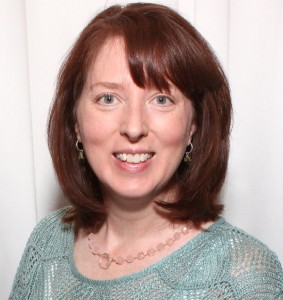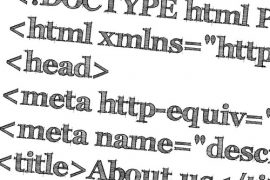Today’s interview showcases my talk with Julie Pippert of Artful Media Group who has been in the business of marketing and communications for over 20 years. For the past 4 years she has been doing it digitally which is really exciting. I loved my interview with her not only because I find her job fascinating but also because she is passionate about math, and that wasn’t always the case for her. It gives me hope that everyone can learn to do math well.
Can you explain what you do for a living?
I help create strategies and tactics–and sometimes execute these–for clients to promote their product or information to people via the many channels of the Internet. Within this we manage relationships with our community (who may also be customers or potential customers). I don’t use the word “customer” very often because most of my work is nonprofit so it is advocacy, thus we work with members, volunteers and the community. The wonderful thing about modern marketing and PR is that we are able to be very specific in who we reach and how we reach them. For example, for $5 I can reach nearly 30,000 people who I know for a fact are interested in this specific topic. That’s much more cost effective than getting a list of 1 million for tens of thousands of dollars and hoping a few in there might want or need what we’re offering. I have also built influencer programs (people who have highly engaged large communities who are interested in what we do), done trainings, spoken at large conferences, and created tons of online content of all sorts.

When do you use basic math in your job?
Everybody has heard about big data. Well, I rely extensively on that to do my job, do it well, and review if I did my job well. I use formulas in spreadsheets to evaluate rankings and ratings of campaigns and influencers. I measure results through different analytics tools and review results across time to see patterns and trends. I do a lot with means, medians and modes as well as percent and statistics. I have to use basic math to add and subtract as well as multiply and divide numbers to find true meaning. I then take the analysis of the data and report it back to my clients. This is how we measure effect and success.
Do you use any technology (like calculators or computers) to help with this math? Why or why not?
Of course! Oh my gosh I’d be lost without spreadsheet formulas (many of which other people developed and set out for free use), analytics tools, and calculators. I also dredge up old algebra to figure out how to calculate some final needed numbers.
How do you think math helps you do your job better?
I would have no idea if I was reaching my goal and achieving the results I needed without math! Math is how I evaluate how well my words, and where and how I used them, work!
How comfortable with math do you feel? Does this math feel different to you?
I hate hate hated math in school. I moved frequently and suffered large gaps in my learning which always set me behind. It’s much easier to make that up in other subjects, but continuity is crucial for learning math well. Math and numbers are not my strength, anyway. By the time I hit the job market, I had decided now that I was done with school, I was also done with math! No such luck! It turns out that was a good thing. I’ve learned to appreciate and even like applied math. On a scale of 1-10 (most comfortable), I’d say I hover at a 6-7 on comfort level. I’ve never completely rebuilt my confidence, and I still get some formulas backwards. I have figured out that I can calculate in my head. In fact, modern math curriculum would have done me a world of good. Applied math in my job feels very comfortable, though, and I think math is great now. I am so pleased to see numbers and find ways to add them up to something meaningful. You can’t measure without math!
What kind of math did you take in high school? Did you like it/feel like you were good at it?
I quit math class the second I reached my final credit. In high school I went up through the second year of algebra which I took in summer school so I could get it over with quickly. In college I took a liberal arts math. I felt like an utter disaster at everything except geometry. I did do well with that but feel it hasn’t come up too often in life. I also had a fantastic teacher who noticed I needed a little extra help and was willing to help me. It was the first time ever with math that I had this sense of wonder and awe of “oh wow I GET it, I totally really GET IT,” and it was great.
Did you have to learn new skills in order to do the math you use in your job? Or was it something that you could pick up using the skills you learned in school?
I use the basics of what I learned in school with the math I do in my job, but a lot of it is new. I seriously wish I’d studied statistics and might do that now.
Anything else you want to mention?
Yes, and I think this is SUPER important. You know how we all accept the fact that kids come into reading at different ages? Where is that understanding for math? Some kids are ready for multiplication in 2nd grade and others not until 4th or even 5th. Math is so prescribed. I think that’s why so many kids hate it and feel such an utter hopeless failure at it. You must achieve this level of math by this age whether your brain is ready or not — and it is so quick and easy to label kids as dumb at math when they don’t fall into that model. We have got to offer more paths of progression for math, just like we do for reading.
What we have finally gotten right is allowing different paths for solving math problems in education. Unfortunately, teachers have got that mixed up, and kids are so confused because they’re expected to master EVERY method of problem solving and demonstrate that mastery on exams, sometimes using the multiple methods for the same problems. Why have different methods for different sorts of kids and brains and then expect all of them to do well?
Have comments or questions for Julie? Let me know!
